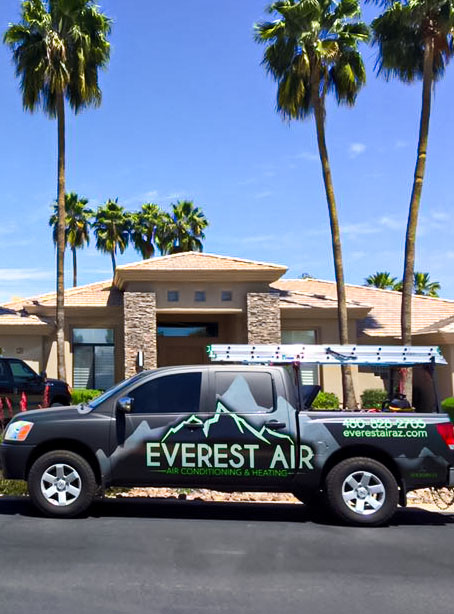Understanding The Different Types Of Heating Systems Available
Are you tired of shivering during the winter months and paying high heating bills? It’s time to understand the different types of heating systems available to you. With this knowledge, you can make an informed decision about which heating system best suits your needs and budget.
Forced-air heating systems are the most common type of heating system in homes today. They work by using a furnace to heat air, which is then blown through ducts and vents throughout your home. Radiant heating systems, on the other hand, work by heating objects in a room, such as the walls or floors, rather than the air. Geothermal heating systems use the earth’s natural heat to warm your home, while heat pump systems transfer heat from the outside air to the inside of your home. Boiler systems use hot water or steam to heat your home, and solar heating systems harness the power of the sun to keep your home warm. By understanding each of these heating systems, you can make an informed decision about which one is right for you.
Forced-Air Heating Systems
If you want to feel cozy and warm during the chilly months, look no further than forced-air heating systems! These types of heating systems are popular in many homes because they are efficient and effective at quickly heating up a space. The installation process for forced-air heating systems is relatively simple, and they can be installed in both new and existing homes.
One thing to keep in mind with forced-air heating systems is that they do require regular maintenance to ensure they are working properly. This includes changing the air filter regularly, cleaning the ducts, and having a professional inspect the system annually. However, with proper maintenance, forced-air heating systems can provide reliable and consistent heat throughout the winter months.

Radiant Heating Systems
Radiant heating systems, which use electric or hydronic heating elements installed beneath flooring, are a popular option for homeowners seeking efficient and effective home heating solutions. These systems work by heating the objects in a room, such as furniture and people, rather than the air itself. This results in a more even distribution of heat, without the need for noisy fans or ductwork.
One of the major benefits of radiant heating systems is their energy efficiency. Because they don’t rely on forced air to distribute heat, they use less energy and can save homeowners money on their heating bills. Additionally, radiant heating systems are virtually silent and eliminate the need for bulky heating equipment taking up valuable space in a room. However, installation and maintenance of these systems can be more expensive than traditional forced-air systems, and repairs can be more difficult if there are issues with the heating elements beneath the flooring.
Geothermal Heating Systems
Geothermal heating systems, also known as ground-source heating, use the earth’s constant temperature to provide heating and cooling for homes and buildings. These systems use loops of underground pipes filled with water or antifreeze to transfer heat between the earth and the building. Geothermal installation can be expensive, but the long-term benefits are worth the investment.
One of the main benefits of geothermal heating systems is their energy efficiency. They use less energy than traditional heating systems, which can save homeowners money on their energy bills. Geothermal systems also have a longer lifespan than traditional systems, with some lasting up to 25 years or more. Additionally, they are environmentally friendly, producing less carbon emissions than traditional heating systems. If you’re looking for a heating system that is both efficient and environmentally friendly, geothermal heating systems may be the right choice for you.
Heat Pump Systems
Looking for an efficient and cost-effective way to heat and cool your home? Consider heat pump systems! These systems work by transferring heat from the air or ground outside your home to the inside, providing both heating and cooling capabilities. Compared to traditional heating systems, heat pumps are much more efficient, as they don’t generate heat but rather move it from one place to another. This means that they use less energy and can save you money on your energy bills.
In terms of maintenance requirements, heat pumps are relatively low-maintenance. They don’t require regular cleaning or filter changes like traditional heating systems, but it’s still important to have them serviced by a professional once a year to ensure they’re running efficiently. Overall, heat pump systems are a great option for those looking for an energy-efficient and cost-effective way to heat and cool their homes.
Boiler Systems
If you’re considering a boiler system, you’ll be impressed by the quiet and efficient heating it provides throughout your home. Unlike forced-air heating systems, boilers use water to distribute heat through radiators or underfloor pipes. This means that there is no need for noisy fans or ductwork, making for a more peaceful home environment.
When it comes to efficiency comparison, boilers are often more energy-efficient than forced-air systems. This is because the water used in boilers can retain heat for much longer than air, allowing for more consistent and even heating throughout your home. Additionally, boilers typically require less maintenance than forced-air systems, as they have fewer moving parts and don’t require regular duct cleaning. Overall, if you want a reliable, efficient, and quiet heating system, a boiler may be the perfect choice for your home.

Solar Heating Systems
With solar heating systems, you can harness the power of the sun to warm your home in an eco-friendly way. These systems work by collecting the sun’s energy through solar panels, which then transfer the heat to a fluid that circulates through pipes to heat your home. One of the biggest advantages of solar heating systems is that they use a renewable energy source, so you can save money on your energy bills while also reducing your carbon footprint.
However, there are some limitations to consider before installing a solar heating system. Firstly, the initial installation cost can be high, and you may need to make some modifications to your home to ensure that it is compatible with the system. Additionally, solar heating systems rely on sunlight, so they may not work as efficiently in areas with limited sunlight or during the winter months. Maintenance requirements for these systems are also important to consider, as they may require periodic cleaning and repairs to ensure optimal performance. Despite these considerations, solar heating systems can be an excellent choice for those looking for an eco-friendly heating option.
Conclusion
Now that you understand the different types of heating systems available, it’s important to choose the one that best fits your needs and budget. If you want an affordable option that is easy to install and maintain, a forced-air heating system may be the way to go. However, if you prioritize energy efficiency and want a heating system that will lower your carbon footprint, a geothermal or solar heating system may be worth the investment.
Consider factors such as the size of your home, your local climate, and your heating preferences when making your decision. Don’t be afraid to consult with a professional to ensure that you choose the right heating system for your specific needs. By choosing the right heating system for your home, you can ensure that you stay warm and comfortable throughout the winter months while also saving money on your energy bill.







